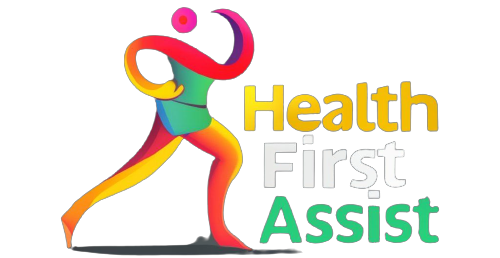The Importance of Hydration and How to Stay Hydrated
The answer of hydration and to stay hydrated is water. Yup, water makes up over 60% of the our body. It regulates temperature, cushions joints, protects organs and tissues, gets rid of wastes, and keeps skin looking healthy and youthful.
Without water, we wouldn’t survive more than a few days. But the question is – are we drinking enough on a daily basis to really thrive?
Proper hydration is one of the most crucial pieces of a healthy lifestyle. Let’s examine why it’s so vital for wellbeing, how to know if you’re dehydrated, and simple strategies anyone can use to stay hydrated.
Why Hydration Matters
Water might be a nutrient we easily take for granted, but every system in our body depends on adequate water intake to function properly.
Harvard Health Publishing explains why proper hydration is so vital:
Water makes up more than half of your body weight. Your body depends on water to survive. Lack of water can lead to dehydration — a condition that occurs when you don’t have enough water in your body to carry out normal functions. Even mild dehydration can drain your energy and make you tired.
Let’s examine why adequate water intake is crucial for all the major systems and normal functioning of the body:
Digestive System
- Water keeps the digestive tract lubricated allowing food to properly move
- It’s essential for nutrient absorption
- Prevents constipation
Circulatory System
- Carries oxygen and nutrients in blood to cells
- Removes waste products from the cells to kidneys/liver
Nervous System
- Forms protective fluid cushioning around spine and brain
- Prevents cognitive impairment from dehydration
Musculoskeletal System
- Keeps joints lubricated preventing friction and wear
- Provides muscles elasticity protecting from cramping or injury
Detoxification Systems
- Water sweats out toxins and waste products through skin
- Carries waste to kidneys and liver processing
Simply put, without adequate hydration, every major system suffers – leading to increased risk of sickness, infection, poor wound healing, fatigue, headaches, skin issues and more.
Estimating your daily fluid requirements depends on many factors like age, activity level, health conditions and more. The National Academies of Sciences, Engineering, and Medicine break down general daily total water intake recommendations:
|
Age/Gender |
Total Water (L/day) |
| Infants 0-6 months | 0.7 |
| Infants 7-12 months | 0.8 |
| Children 1-3 years | 1.3 |
| Children 4-8 years | 1.7 |
| Boys 9-13 years | 2.4 |
| Girls 9-13 years | 2.1 |
| Boys 14-18 years | 3.3 |
| Girls 14-18 years | 2.3 |
| Adult males | 3.7 |
| Adult females | 2.7 |
However, a good baseline target for the average adult is 64 oz per day from water and other fluid sources. Are you reaching your daily fluid goals? Let’s explore signs of dehydration and simple tips to stay hydrated moving forward.
Signs You Might Be Dehydrated
Mild or moderate dehydration can sneak up on you, with symptoms barely noticeable day-to-day. Here are some signals from your body that could indicate inadequate hydration:
- Increased thirst
- Fatigue or tiredness
- Dark urine colour or low output
- Dry mouth or lips
- Headaches
- Cramps or aches
- Difficulty concentrating
- Moodiness or irritability
- Skin tightness or dryness
Don’t ignore these cues from your body. Staying ahead of dehydration through proper daily intake makes a big difference long term for energy levels, skin health, kidney function, mental clarity and more.
Tips to Staye Hydrated
Focusing on increasing water and fluid intake may sound simple – but it’s not always easy to put into practice. Here are 5 tips for effortlessly upping hydration:
- Have water easily accessible – If water is out of sight, it’s often out of mind. Keep water bottles, glasses or pitchers full and conveniently located to take sips throughout the day.
- Set reminders to drink – Smart watches or phone alerts are great for reminding you to drink water at set intervals. Or simply set phone alarms or use apps to prompt you.
- Flavour things up – Don’t just gulp plain water if that bores you. Add sliced fruit like oranges, lemons, limes, watermelon or cucumber to water for a refreshing kick of flavour. Or drink herbal iced tea, sparkling water or other fluids to mix it up.
- Measure your daily intake – Mark your intake on a big jug or use an app to track ounces consumed so you can see your hydration progress and catch shortfalls.
- Eat water-rich foods – Foods like grapes, celery, melons, citrus fruits, lettuce, pineapple and tomatoes all contribute to fluid intake in addition to straight drinks.
Dehydration’s mild symptoms may be subtle, but over time chronic underhydration can result in kidney problems, electrolyte imbalances, poor cognitive or physical performance and more health complications. Drinking adequate water and fluids daily provides huge benefits for looking and feeling your best.
So, are you properly hydrated? Be on the lookout for those telltale signs of fluid shortfalls from your body. And try adopting some of these simple tips to effortlessly infuse more hydration into your daily lifestyle. By staying proactively hydrated, you’ll be amazed at feeling healthier while getting preventative protection against a variety of common health ailments down the road.
References
- Staff, H. H. P. (2022, June 1). Water: How much should you drink every day? Harvard Health.
- National Academies of Sciences, Engineering, and Medicine. (2005). Dietary Reference Intakes for Water, Potassium, Sodium, Chloride, and Sulfate. Washington, DC: The National Academies Press.
- Popkin, B. M., D’Anci, K. E., & Rosenberg, I. H. (2010). Water, hydration, and health. Nutrition reviews, 68(8), 439–458.


[…] The Importance of Hydration and How to Stay Hydrated […]
[…] The Importance of Hydration and How to Stay Hydrated […]